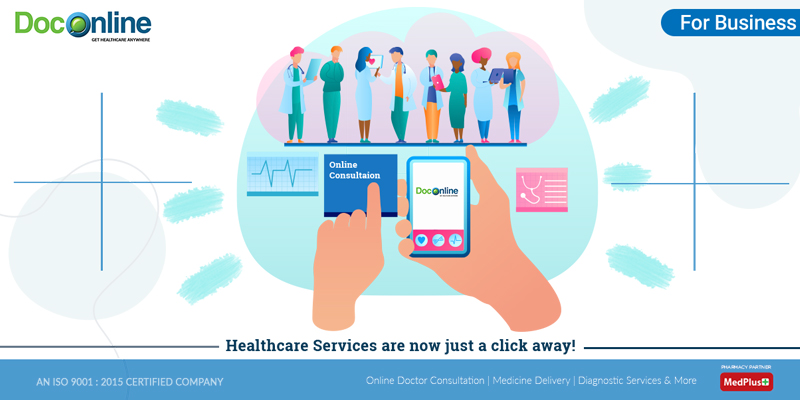The Surge of Subscription-Based Health Care and Its Influence On Person Care
As healthcare evolves, the subscription-based model is gaining grip, guaranteeing to transform client care by offering predictability and accessibility. The potential for these designs to improve healthcare delivery increases pressing questions concerning their long-term sustainability and inclusivity. Are these registration services the future of medical care, or do they take the chance of leaving prone populations behind?
Recognizing Registration Health Care Models
Grasping the concept of membership healthcare designs includes examining a transformative strategy to medical solutions that emphasizes cost and accessibility. These versions, commonly referred to as direct medical care (DPC) or attendant medicine, have actually arised as ingenious choices to standard fee-for-service medical care systems. Subscription healthcare permits clients to pay a fixed month-to-month or yearly fee for a specified collection of medical services, which might include endless workplace gos to, regular check-ups, and fundamental laboratory tests, without the need for conventional insurance coverage billing.
The structure of subscription medical care models is created to streamline person treatment by eliminating third-party payers and intricate billing codes, therefore reducing administrative worries. Doctor can concentrate extra on patient care, fostering more powerful patient-provider partnerships. This version also advertises preventative treatment by encouraging regular visits, as the economic barrier of per-visit charges is gotten rid of.
The subscription model frequently empowers healthcare carriers to manage smaller patient panels, permitting more personalized treatment. It lines up monetary incentives with client wellness end results, as carriers are encouraged to keep client complete satisfaction and health. Generally, comprehending subscription health care designs needs recognizing their prospective to reshape just how care is provided and accessed.
Advantages for Carriers and people

For companies, subscription-based models offer the chance to deepen patient-provider connections. With a constant profits stream, health care professionals can devote even more time per patient, bring about an extra tailored and complete care experience. This design also reduces reliance above client quantities, relieving burnout and boosting job satisfaction. In addition, the focus on precautionary treatment within membership plans can cause far better person end results and reduced long-lasting healthcare prices. By focusing on constant treatment, providers can resolve concerns prior to they rise, eventually profiting the medical care system in its entirety by minimizing the burden on emergency and severe care solutions.
Obstacles and Worries
While subscription-based healthcare designs existing countless advantages, they also come with a collection of obstacles and issues that need to be resolved. This elevates moral inquiries concerning fair accessibility to medical care solutions.
Financial sustainability of subscription-based designs is one more problem. Providers should stabilize the set income from subscriptions with the variable costs of healthcare solutions, which might change as a result of unpredicted clinical requirements. This can create stress to restrict services or rise charges, potentially impacting individual contentment and care high quality.
Moreover, governing oversight of subscription-based medical care designs is still progressing. The absence of standardized frameworks can cause irregular service quality and liability, complicating efforts to make sure client protection. The assimilation of modern technology-- usually a cornerstone of these versions-- elevates inquiries concerning data privacy and safety, as delicate client details could be prone to breaches. Attending to these her response obstacles is essential for the effective and equitable application of subscription-based medical care.
Influence on Patient-Doctor Relationships
One considerable impact of subscription-based health care designs on patient-doctor partnerships is the potential for enhanced continuity and individualized treatment. By taking on a subscription design, doctors can handle a smaller sized client panel, enabling for even more dedicated time with each person. This raised schedule cultivates a much deeper understanding of a client's case history, way of living, and choices, making it possible for much more tailored treatment strategies and interventions.

Nonetheless, it is necessary to identify that while subscription-based designs may benefit those that can manage them, they can unintentionally expand medical care differences. Clients who are incapable to join these versions could experience lower accessibility to customized care, potentially influencing their partnerships with health care service providers. Thus, while the registration design uses encouraging advantages for patient-doctor relationships, it also poses obstacles that require to be resolved to guarantee equitable health care access.
Future of Health Care Accessibility

The role of innovation can not be overlooked in this transformation. Telemedicine platforms and electronic health and wellness documents facilitate smooth communication between people and doctor, breaking down geographical and logistical obstacles. In addition, innovations in synthetic knowledge and information analytics can even more customize treatment by predicting person needs and maximizing treatment strategies.
Nonetheless, the future of healthcare accessibility additionally provides difficulties, such as making sure equity throughout different socio-economic teams. Policymakers and health care suppliers must work together to bridge the digital divide, ensuring that subscription-based designs stay comprehensive and economical. As additional resources these systems develop, they hold the assurance of making healthcare much more easily accessible, efficient, and patient-centric.
Verdict
Subscription-based medical care versions are reshaping individual care by giving a stable cost framework and improving ease of access. These models enhance patient-provider relationships via individualized treatment and regular gos to, stressing preventative health and wellness. In spite of these benefits, challenges such as ease of access issues for low-income populations and the demand for equitable healthcare remedies continue. The surge of subscription-based medical care urges positive patient engagement, which has the prospective to boost client outcomes and fulfillment, signifying a transformative shift in health care shipment.
As medical care develops, the subscription-based version is getting traction, promising to transform client care by using predictability and accessibility.Subscription-based healthcare versions use distinctive benefits for both companies and clients, enhancing the total medical care experience.As health care systems develop, the future of health care accessibility regularly pivots on the combination of innovative models and innovations.Subscription-based medical care versions are reshaping patient treatment by offering a stable cost framework and enhancing ease of access. The rise directory of subscription-based health care motivates positive person interaction, which has the possible to boost person results and contentment, signaling a transformative shift in healthcare shipment.